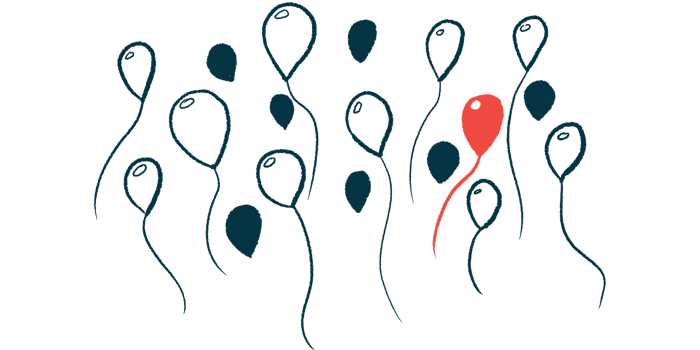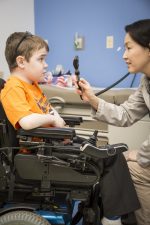AB-1003 gene therapy for LGMD wins EU orphan drug designation
No therapies currently approved for this type of muscular dystrophy
Written by |

The European Commission (EC) has granted orphan drug designation to AB-1003, an investigational gene therapy for limb-girdle muscular dystrophy type 2I/R9 (LGMD 2I/R9), being developed by Asklepios BioPharmaceutical (AskBio).
This designation is given to therapies for life-threatening or chronically debilitating diseases — those affecting no more than five people in 10,000 in the European Union (EU) — when no other satisfactory treatment option is available or, if one exists, the potential therapy provides significant benefit to patients. It provides certain incentives, including 10 years of market exclusivity upon approval and possible exemption or reduction of regulatory fees.
“The EC orphan drug designation for AB-1003 is an important recognition of the unmet medical need in LGMD, which has no approved therapy,” Sheila Mikhail, co-founder and CEO at AskBio, said in a company press release.
LGMD 2I/R9 gradually progresses over time and leads to severe disability
LGMD 2I/R9 is caused by mutations in a gene called FKRP, which provides instructions to produce the fukutin-related protein (FKRP). This protein is particularly abundant in skeletal muscles, heart muscle, and the brain.
In people with this form of muscular dystrophy, symptoms include difficulty walking and running, and usually appear in late childhood. The disease gradually progresses over time and leads to severe disability, with patients requiring a wheelchair to move around after 23 to 26 years of symptoms.
“The burden of this rare form of muscular dystrophy on patients and their families is significant, and this decision supports our efforts to potentially bring a new therapeutic option to people in the EU living with the 2I/R9 type of this devastating disease,” Mikhail said.
AB-1003 (also known as LION-101) uses an engineered viral vector — an adeno-associated virus (AAV) — to deliver a non-mutated version of the FKRP gene, by a single intravenous (into-the-vein) infusion. The technology is commonly used in gene therapies since AAVs do not usually cause serious diseases, do not replicate in the body like normal viruses, and are relatively easy to engineer in the laboratory.
Therapy being tested in Phase 1/2 trial in US
The European Commission decision follows a positive opinion from the Committee for Orphan Medicinal Products, an arm of the European Medicines Agency. The regulatory decision was received through BrainVectis, AskBio’s EU-based subsidiary company.
In the U.S., the safety, tolerability, and efficacy of AB-1003 is being evaluated in a Phase 1/2 study (NCT05230459), in adults with LGMD2I/R9. The therapy was granted fast track designation in the U.S. by the Food and Drug Administration (FDA) in 2021.
The designation is designed to accelerate the development of therapies that fill unmet medical needs for serious conditions. Benefits include more frequent meetings with the FDA to discuss therapy development and eligibility for accelerated approval and priority review.







